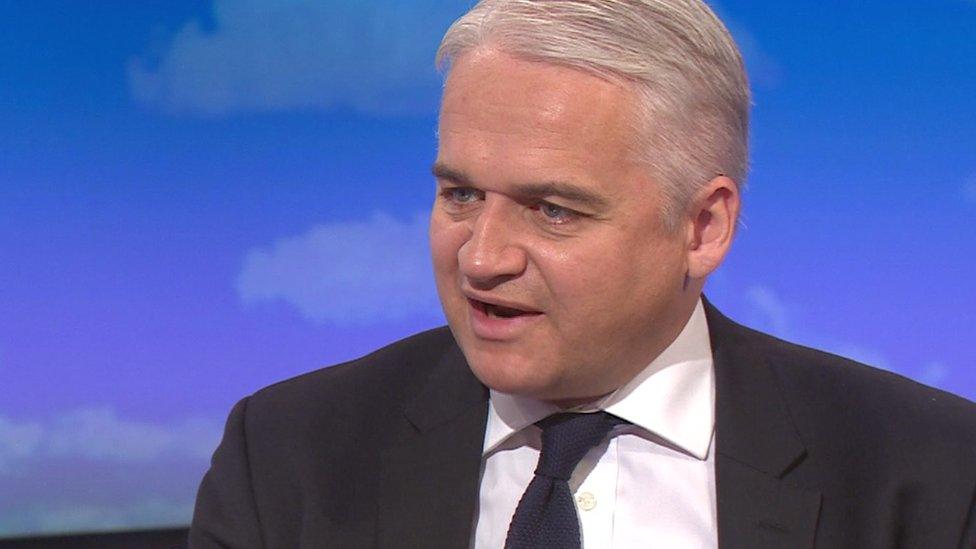Patrick O'Flynn quits UKIP front bench over party's direction
- Published

Patrick O'Flynn was a political journalist on the Daily Express
A leading member of UKIP has resigned from the party's front bench for the second time, saying he is worried about the direction the party is taking.
Patrick O'Flynn, who is standing down as economics spokesman, claims the "centrist approach" advocated by him and others "is falling by the wayside".
The ex-journalist made the announcement as nominations are set to close in the contest to replace leader Paul Nuttall.
Mr Nuttall quit after UKIP failed to win any seats in the general election.
Mr O'Flynn also resigned as economics spokesman in 2015 after he described former UKIP leader Nigel Farage as "snarling, thin-skinned and aggressive" - remarks for which he later apologised.
Announcing his most recent departure, he said: "I have always argued for UKIP to be at the commonsense centre of politics, rather than defined as on the right-wing.
"It is clear to me that UKIP's activist base wishes to go in a more libertarian, shrink-the-state and Thatcherite direction.
"It is regrettable that the more centrist approach argued by the likes of me and Suzanne Evans is falling by the wayside."
Mr O'Flynn, who will continue to serve as an MEP, said he was proud of the role he played in bringing about Brexit.
Conference crowning
His decision to step down comes a day before the 28 July deadline for leadership nominations.
UKIP MEP Bill Etheridge withdrew his leadership bid on Wednesday, with a call for "libertarian" candidates to unite against hard-liners using the party "as a vehicle for the views of the EDL and the BNP".
He also called on Mr Farage to make clear which leadership candidate had his support.
Figures who have declared their intention to run include: Scottish leader David Coburn, MEP Jane Collins, London Assembly members Peter Whittle and David Kurten, Sharia Watch director Ann Marie Waters, former UKIP councillor Ben Walker, former Kent police and crime commissioner candidate Henry Bolton and direct democracy activist John Rees-Evans, who came third in the last contest.
The full line-up in the race to succeed Mr Nuttall is not expected to be announced until several days after nominations close.
Candidates must be vetted by UKIP's National Executive Committee before securing a place on the ballot paper.
The new leader will be announced at UKIP's conference in Torquay on 29 September.